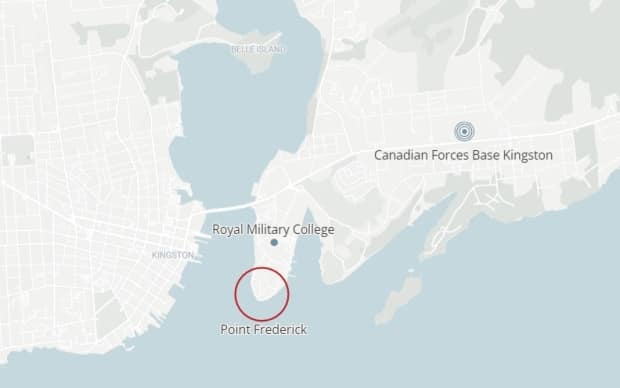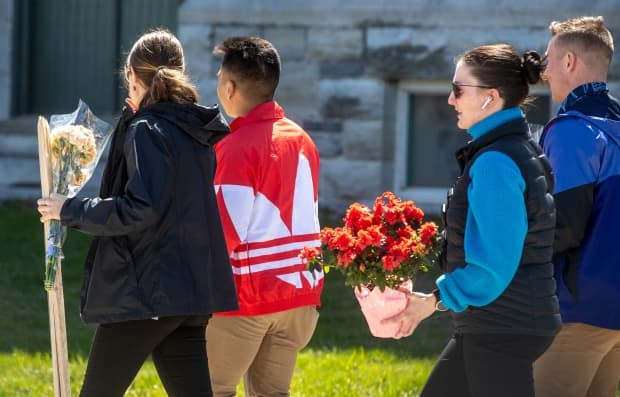Dangerous use of personal vehicle at play in 2022 deaths of Royal Military College cadets

The dangerous use of a personal vehicle was a factor in the deaths of four cadets at the Royal Military College (RMC) in Kingston, Ont., almost a year ago, the Office of the Canadian Forces Provost Marshal says.
"With the families' agreement, [investigators] can confirm the cause of the four deaths was drowning," the office said in a statement issued Friday afternoon.
The three-paragraph release comes nearly two weeks shy of the incident's one-year anniversary and provides no other details about the circumstances of the crash.
"[The families] have asked that their privacy be respected as they continue to grieve this terrible event and that no additional information be released," according to the statement.
Rory Fowler, a retired lieutenant-colonel and a former legal officer in the office of the Judge Advocate General, said the "brief announcement ... still leaves many unanswered questions for some members of the public."
Questions include the use of civilian vehicles on campus and whether any intoxicants were involved in the incident. It's also unclear whether the cadets tried to get out of the vehicle.
"These are, I would suggest, somewhat morbid details that'll probably be very difficult for the families to hear," Fowler said. "As a result, that's probably one of the reasons why the Provost Marshal was circumspect in the news announcement.
Crash happened in early morning hours
At about 2 a.m. ET on April 29, 2022, a vehicle carrying four officer cadets — all in their graduating year — entered the water off Point Frederick, a peninsula between Kingston Harbour and Navy Bay on the St. Lawrence River, which is home to the RMC campus.
The four cadets were later named as Andrei Honciu, Jack Hogarth, Andrés Salek and Broden Murphy.
While few details about the crash were known, foul play was quickly ruled out.
Ontario's Office of the Chief Coroner, Kingston Police and the Canadian Forces National Investigation Service (CFNIS) — the independent investigative arm of the military police — each investigated the incident. Kingston Police provided forensic and collision reconstruction specialists.

Maj.-Gen. D. Craig Aitchison, commander of the Canadian Defence Academy, also ordered an internal summary investigation — one of two types of administrative investigations the military typically orders after the death of a member. They're not meant to assign legal or civil blame or hand out punishment.
The summary investigation report is still being finalized and communicated to the families, according to a spokesperson for the Department of National Defence.
"We'll have more information once that's complete," they said.

The summary investigation looked into the service-related circumstances of the incident and was expected to make recommendations to prevent similar future deaths.
No decision on inquest yet
The cadets' families were briefed on the results of the CFNIS investigation on Thursday, said a spokesperson for the Canadian Forces Provost Marshal.
The Office of the Chief Coroner said no decision has been made yet on whether to hold a coroner's inquest.
The death investigations conducted by the coroner included toxicology tests, the office has previously said. The results of those death investigations are shared with the families and other investigators but are not made public.
Michel Drapeau, a retired colonel who practises military law and teaches at the University of Ottawa, said a coroner's inquest is "absolutely" necessary.
"The public has a right to know, has the right to have an in-depth investigation, so that those four lives, at the very least, can be used to prevent recurrence, so that we can save this pain and grief from any other families," he said.


